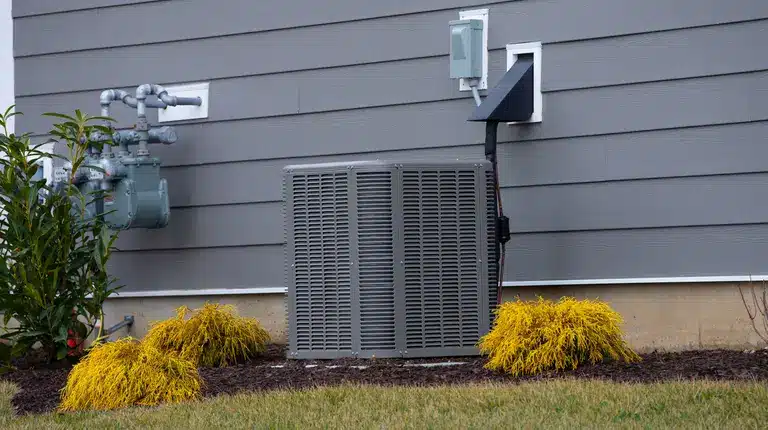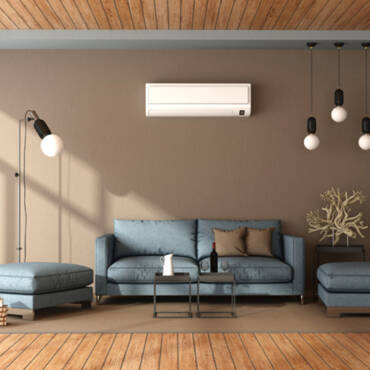Retiring Old Air Conditioners: Is It Time for Yours?
With summer on the horizon, you know the drill—outdoor heat climbs, and so does that monthly utility statement. Your air conditioner steps in to keep things bearable inside, but it’s often the biggest energy hog in the house. The upside? Advances in technology have transformed modern units into far more efficient performers compared to those from a decade or two ago.
Think about it: today’s systems boast oversized coils for better heat exchange, compressors that adjust speeds to avoid wasteful on-off cycles, and motors in blowers that sip electricity rather than guzzle it. They’re also whisper-quiet and built to last longer without breakdowns. Of course, these upgrades come with a steeper price tag than older models, but the payoff in reliability and lower bills can make the switch worthwhile.
So, how do you decide when to pull the plug on an aging setup? It’s a balance of age, performance, and ongoing costs. According to insights from Consumer Reports, central air conditioners generally hold steady for up to 15 years, while room units might tap out closer to 10 years. Furnaces vary too—electric models often reach 15 years, gas ones push to 18, and oil-fired versions can go up to 20. These timelines aren’t set in stone; they’re influenced by how you use and care for your equipment.
But, what really sways an appliance’s staying power? Brand reputation plays a part—some makers consistently deliver sturdier builds based on repair track records. Then there’s your daily habits: heavy usage in extreme climates can wear things down faster, while gentle operation in milder areas lets them coast longer. Maintenance is the real game-changer, though. Skipping those checkups is like ignoring oil changes in your car—it invites early troubles. For heating and cooling equipment, this means cleaning components, checking seals, and ensuring everything runs smoothly to fend off efficiency drops or breakdowns.
To put your AC in context, consider the broader HVAC family it works with. Pairing an older conditioner with a mismatched furnace or an outdated thermostat can create inefficiencies across the board. Thermostats, for instance, are marathon runners with potential spans up to 35 years, making them a smart upgrade point for better control and energy smarts. Even add-ons like dehumidifiers (around 8 years) or humidifiers (similarly 8 years) tie into your home’s comfort system, helping regulate moisture that affects AC performance. Understanding these interconnections helps you spot when one weak link might drag down the whole setup, turning a simple fix into a strategic refresh.
Beyond age, watch for red flags like uneven cooling, strange noises, or spiking repair bills. These signal that the system’s struggling, and patching it up might just delay the inevitable. On the flip side, if your AC is newer, a proactive service plan keeps it humming efficiently. Simple steps, like changing filters or scheduling annual checkups, go a long way.
At Air-Tro, Inc., we’ve seen how timely interventions make all the difference for families in our community. Whether you’re eyeing a full replacement or just a seasonal inspection, reaching out early ensures you’re set for whatever the weather throws your way.
Frequently Asked Questions
How Long Do Central Air Conditioners Typically Last? Central air conditioners are built to endure around 10-15 years with proper care, though this can vary by model and usage. Factors like regular maintenance play a big role in extending that timeline.
What Are the Signs That My Air Conditioner Needs Replacing? Look out for inconsistent temperatures across rooms, unusual sounds during operation, or a noticeable jump in energy costs. Frequent repairs are another clue that it’s time to consider an upgrade.
How Can I Make My Current Air Conditioner Last Longer? Stick to a routine of professional servicing, clean or replace filters monthly during use, and keep the outdoor unit clear of debris. These habits help maximize efficiency and lifespan.
Are New Air Conditioners Really More Energy Efficient? Absolutely—features like variable-speed tech and improved insulation mean they use less power for the same cooling output, often translating to 20-40% savings on bills compared to outdated models.
What Should I Expect from a Professional AC Service? A thorough inspection covers refrigerant levels, electrical connections, and coil cleaning, plus advice on any potential issues. It’s a smart way to head off problems before they escalate.
What Factors Influence the Lifespan of HVAC Components Like Furnaces and Thermostats? Brand quality, usage intensity, and consistent upkeep are key. For example, gas furnaces might reach 18 years with diligent care, while thermostats can go as long as 35 years, enhancing overall system control.
How Do Related Appliances Affect My AC’s Performance? Items like dehumidifiers interact with your cooling system by managing humidity and heat distribution. If they’re aging—say, a dehumidifier at its 8-year mark—it could strain your AC, prompting a holistic review.
Ready to Retire Your Old Air Conditioner?
Don’t let an outdated system turn your summer into a sweatfest or drain your wallet with needless energy use. Upgrading to a modern, efficient model from Air-Tro, Inc. means cooler comfort, fewer breakdowns, and real savings over time. Give our team a ring today at (626) 357-3535 to schedule a consultation—we’ll help you stay ahead of the heat and make the transition smooth.
Whether you require installation, repair, or maintenance, our technicians will assist you with top-quality service at any time of the day or night. Take comfort in knowing your indoor air quality is the best it can be with MOE heating & cooling services Ontario's solution for heating, air conditioning, and ventilation that’s cooler than the rest.
Contact us to schedule a visit. Our qualified team of technicians, are always ready to help you and guide you for heating and cooling issues. Weather you want to replace an old furnace or install a brand new air conditioner, we are here to help you. Our main office is at Kitchener but we can service most of Ontario's cities
Source link



